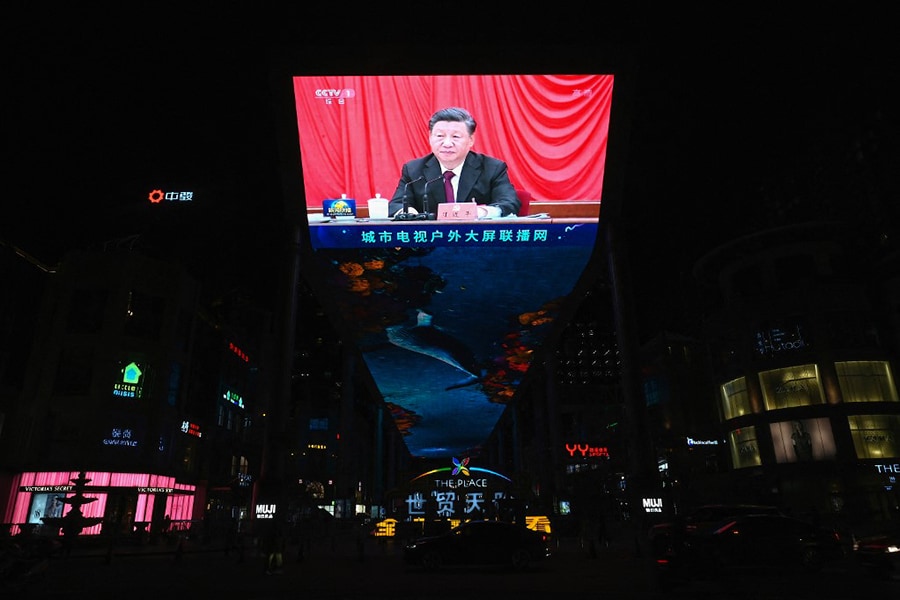
China's Communist Party exalts Xi into Mao-like status, solidifying his future
The party gave no hint of any possible successor to Xi, adding to the signs that he is likely to secure a third five-year term as the party's general secretary next year, possibly without a clear heir apparent
 China's President Xi Jinping is seen in a big screen during an evening news program at a mall in Beijing on November 11, 2021, as top Communist Party leaders wrapped up a key meeting by passing an important resolution on the country's past, state media said, which is expected to cement President Xi Jinping's grip on power. (Photo by Noel Celis / AFP)
China's President Xi Jinping is seen in a big screen during an evening news program at a mall in Beijing on November 11, 2021, as top Communist Party leaders wrapped up a key meeting by passing an important resolution on the country's past, state media said, which is expected to cement President Xi Jinping's grip on power. (Photo by Noel Celis / AFP)
China’s Communist Party officially decided Thursday to exalt President Xi Jinping as one of the country’s greatest modern leaders, vaulting him into a rarefied realm that strengthens his potential to retain control for many years.
The decision, announced after a closed-door meeting by senior party officials in Beijing, amounted to a revision of the ruling party’s 100-year history that some analysts said would help cement Xi’s authoritarian model for ruling China. It anointed Xi, 68, with an era-defining stature that will take his official adulation to a new and more intense phase.
In the party’s eyes, Xi, already China’s most powerful leader in decades, now stands alongside Mao Zedong, founder of the country’s communist rule, and Deng Xiaoping, chief architect of its economic takeoff.
The announcement, conveyed in China’s state-run media via an official communiqué about the meeting, gave no hint of any possible successor to Xi, adding to the signs that he is likely to secure a third five-year term as the party’s general secretary next year, possibly without a clear heir apparent.
The decision to place Xi among the country’s historical giants will bolster his argument that he is the only leader capable of steering China toward superpower status through uncertain times. China navigated the COVID-19 pandemic relatively well, but it faces economic risks from debt-laden companies and local governments, social pressures as its population ages, and growing distrust from the United States and other Western countries.
©2019 New York Times News Service







